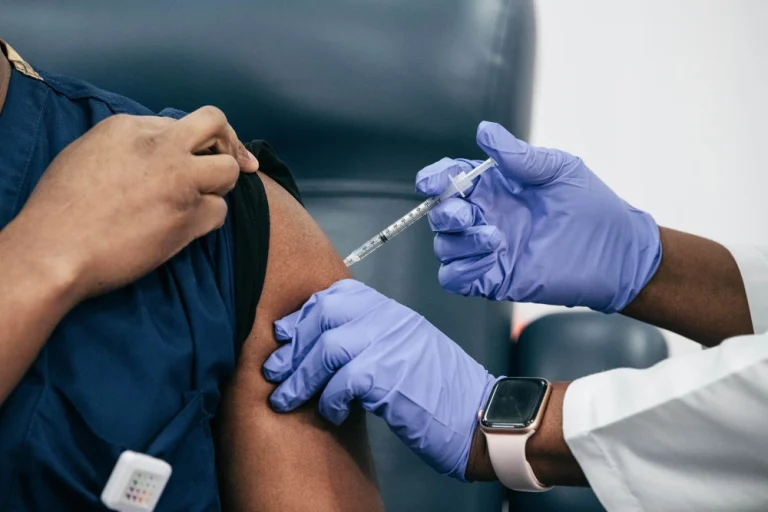FDA Recommends New LP.8.1 Strain for Fall COVID Vaccines, Raising Access Concerns
The U.S. Food and Drug Administration announced Thursday it is recommending drugmakers update COVID-19 vaccines to target the LP.8.1 strain this fall, a move that could limit access to the shots for many Americans.
This decision marks a departure from the FDA advisory panel’s earlier suggestion to continue with the strains used in current vaccines. Though panel members acknowledged LP.8.1 as a viable option, the FDA’s preference signals a shift that could trigger additional regulatory steps.
Under current FDA policy, any significant vaccine update—such as a change in strain—may require placebo-controlled clinical trials for healthy adults and children. Exempt from this requirement are adults 65 and older and individuals with underlying medical conditions, who will still be eligible for the fall rollout without trial delays.
The list of qualifying conditions is broad and includes even “physical inactivity.” Experts estimate over 100 million Americans would still be eligible for the updated shots.
Dr. Jesse Goodman, a professor of medicine at Georgetown University and former FDA chief scientist, expressed concern over the clinical trial mandate. “It would clearly delay and impede access to vaccines for those who want them,” he said.
However, many specifics about the trial requirements remain unclear, including how many participants would be needed and whether selecting LP.8.1 officially triggers the rule. When pressed by advisory committee members, FDA officials either said such questions were off-topic or that discussions with manufacturers were ongoing.
While the FDA’s guidance says it would “prefer” the LP.8.1 strain, it may still allow manufacturers to retain current formulations, depending on their production timelines and regulatory negotiations. “I suspect the agency’s approach will evolve in the coming days,” Goodman said, adding that leaving room for flexibility is wise given the unpredictability of viral evolution.
The FDA has referred media inquiries to the Department of Health and Human Services. HHS spokesperson Emily Hilliard emphasized the administration’s new direction: “The COVID-19 public health emergency has ended, and we’re entering a new phase. A rubber-stamping approach to boosters without clinical trial data is over.”
Pfizer responded by stating it is ready to supply a 2025/2026 vaccine formula immediately upon FDA approval. Moderna and Novavax have not yet commented.
The question of insurance coverage remains unresolved. Some fear that if healthy individuals fall outside the eligibility criteria, they may need to pay out-of-pocket. According to the CDC, Pfizer and Moderna have priced their vaccines at up to $150 per dose. Novavax’s price has not been publicly listed.
A spokesperson from America’s Health Insurance Plans, a major industry group, said insurers continue to prioritize affordable access to preventive services like vaccines. “We will monitor upcoming guidance from ACIP and the CDC,” the spokesperson said. “As of now, there’s no change in how existing vaccines are covered.”
Moderna and Pfizer’s own research has shown that an LP.8.1-targeted vaccine produced a modestly stronger immune response than current vaccines, which target the JN.1 strain or its variants, such as KP.2. LP.8.1 itself is a descendant of JN.1 and now accounts for approximately 75% of COVID cases in the U.S., according to recent FDA briefings.
The FDA’s move to update the strain aligns with its typical annual strategy for COVID and flu vaccines. Thanks to mRNA technology, companies like Pfizer and Moderna can update their vaccines quickly. But this year, unlike previous ones, the update may come with a longer timeline due to the newly reinstated trial requirement.
FDA Commissioner Dr. Marty Makary told a Senate committee Thursday that new placebo-controlled trials could take up to a year—potentially slowing access for many healthy Americans just as a new COVID wave arrives.

